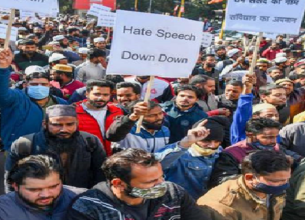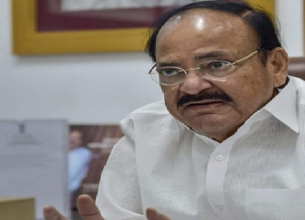ROLE OF L-G AND GOVERNMENT IS INTERTWINED: MADRAS HC
13, Mar 2020

Prelims level : State Legislature
Mains level : GS-II Parliament and State Legislatures - Structure, Functioning, Conduct of Business, Powers & Privileges and Issues Arising out of these.
Why in News?
- Madras High Court has set aside its own order restraining the L-G from interfering in the day-to-day affairs of the elected government of the union territory.
What is the Issue?
- Previously, On March 2019, the Madras High Court had said that the L-G does not have the power to interfere in the day-to-day activities of the union territory.
- LG also have doesn’t the right to seek any government documents from the Puducherry government.
What are the observations made by the High Court in its latest order?
- The role of Puducherry’s Lieutenant Governor and that of an elected government in the Union Territory were intertwined as per law, and therefore they were expected to act in unison and not in division.
- In the past judgment on this issue, the single judge had erred in holding that the Puducherry Legislative Assembly enjoys similar powers to that of a State legislature.
- A government is “a trustee for the little man who should not have a perception that the running of the government is a gigantic conspiracy”.
What are the powers and sources of LG of Puducherry?
- The Government of Union Territories Act, 1963 provides for a Legislative Assembly of Pondicherry (as Puducherry was then called), with a Council of Ministers to govern the “Union Territory of Pondicherry”.
- The same Act says that the UT will be administered by the President of India through an Administrator (LG).
- Section 44 of the Act, says the Council of Ministers headed by a Chief Minister will “aid and advise the Administrator in the exercise of his functions in relation to matters with respect to which the Legislative Assembly of the Union Territory has power to make laws”.
- The same clause also allows the LG to “act in his discretion” in the matter of law making, even though the Council of Ministers has the task of aiding and advising him.
What happens if there is a Difference of Opinion?
- In case of a difference of opinion between the LG and his Ministers on any matter, the Administrator is bound to refer it to the President for a decision and act according to the decision given by the President.
- However, the Administrator can also claim that the matter is urgent, and take immediate action as he deems necessary.
When prior sanction of the Administrator is Required?
- Under Section 22 of the Act, prior sanction of the Administrator is required for certain legislative proposals.
- These include Bills or amendments that the Council of Ministers intends to move in the Legislative Assembly, and which deal with the “constitution and organisation of the court of the Judicial Commissioner”, and “jurisdiction and powers of the court of the Judicial Commissioner with respect to any of the matters in the State List or the Concurrent List”.
- It is also obligatory on the part of the UT government to seek the “recommendation” of the LG before moving a Bill or an amendment to provide for “the imposition, abolition, remission, alteration or regulation of any tax”, “the amendment of the law with respect to any financial obligations undertaken or to be undertaken”, and anything that has to do with the Consolidated Fund of the UT.
Powers of LG when a Bill is Passed:
- Once the Assembly has passed a Bill, the LG can either grant or withhold his assent; or reserve it for the consideration of the President.
- He can also send it back to the Assembly for reconsideration.










